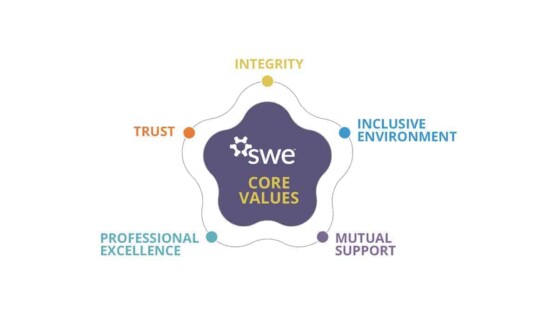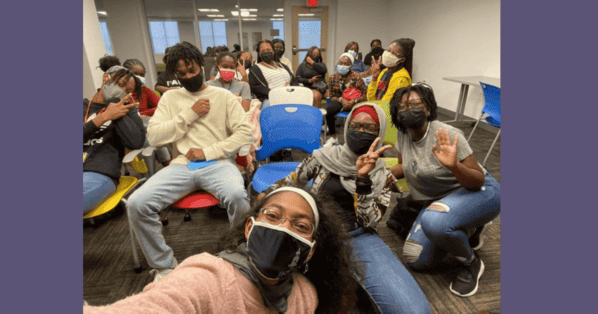“Mental Health & Women in STEM” was written by SWE Member and FY20 Global Ambassador, Preethi Karpoor.
With the month of May being celebrated as Mental Health Awareness Month every year across the globe, the previous month of the ever-so-exciting 2020 had to be a special one. With a raging pandemic, scathing natural disasters, rapidly evolving work and social environments, ‘normal mental health’ seems like a distant dream to a large fraction of us—including those who have never considered mental health to be a sound pillar for quotidian functioning.
While engineers have been among those leading the change to a better tomorrow amidst this highly challenging scenario , the subset of women engineers and women in STEM have not had it easy! Historically conditioned and branded to be home makers, women engineers and engineering students alike have had to try thrice as hard to carve a niche as a professional. Ask any female college student in STEM on a daily basis—pandemic or not—about how they’re doing and you’ll hear one standard answer: “I am stressed.” From gender bias and lack of companionship to having the excessive need to prove their mettle independent of their gender, numerous factors have culminated in onset of traumatic responses: rocketing stress levels, long-term anxiety, the infamous Imposter Syndrome, and even clinical depression.
Does it now come as a surprise that women in STEM and female students in STEM top the charts when it comes to suffering with mental health issues? I don’t think so. Studies have indicated that every 12 in 100 female engineers and 34 in 100 female engineering students suffer from some form of mental health issue. The very fact that these numbers were so scarcely available on the world wide web clearly shows how mental health is an unspoken realm.
In the world we live in, mental health is more than often confused as a ‘disability’ or an ‘instability’ that will only slow us down in this rat race. This is the stigma that we need to break. Instead of delving in the past, or even the present, we, as a community, need to look into the future. Given these troubled times, it is up to us to start the conversation. Feel the slightest twinge of discomfort or anxiety? Ring up a friend or a co-worker! Feeling too wrapped up and claustrophobic at home or due to work? Talk to a supervisor. Feel that nothing is going your way for a long time? Go ahead, reach out to a counsellor. Embrace the arduous journey with a calm head and try to return to the world at your own pace. After all, comebacks are stronger than setbacks.
Most importantly, build a community—identify and help those who may not even know how to seek help. If you are an employer, create a safe space for your employees. If you are an educator, start seeding the thoughts of equality and indifference in all your students so that they never have to deal with mental health issues arising from the lack of acceptance or anything else. If you are a student, just do everything in your power! No matter what is happening in the world, it is important to start the conversation.
Remember, never subdue yourself, never blame yourself and above all, never doubt yourself!
Related content:
- SWE’s Next Actions for Intentional Inclusion
- Am I Doing Enough- Imposter Syndrome During COVID-19
- On Engineering in Crisis: Relieving Stress with Information
- SWE Supports #ShutDownSTEM Movement
- On Engineering in Crisis from India: Coordinating with Family
- Taking a Stand For Diversity and Inclusion
Author
-

Preethi R. Karpoor is a recent Mechanical Engineering graduate from Bengaluru, India. She is a FY21 Global Ambassador for SWE and the Co-Lead for the SWE Content Curation Working Group. With her primary area of interest being research in instrumentation for experimental physics, she is also passionate about advocacy for Girls in STEM and enjoys writing.






